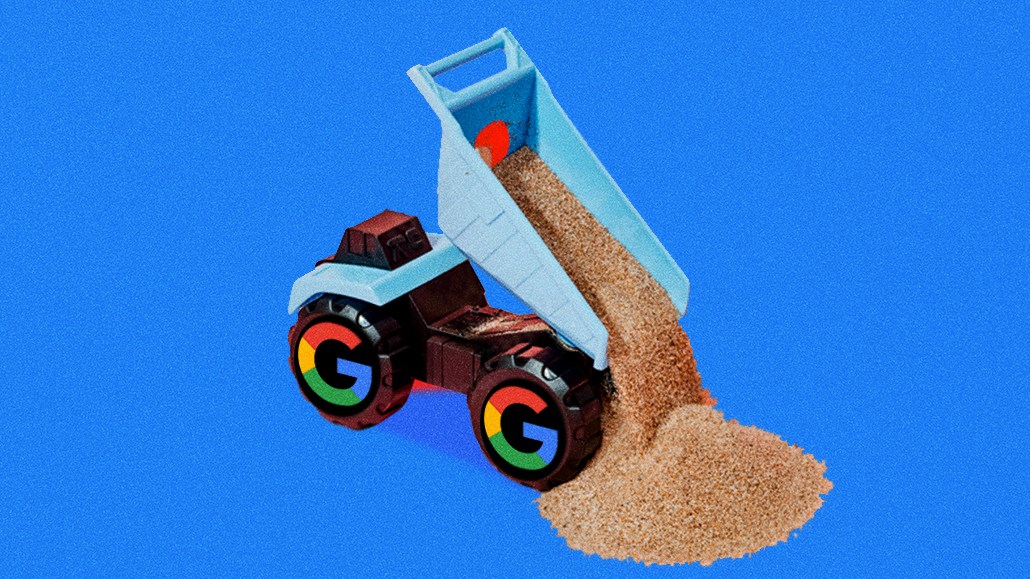Secure your place at the Digiday Media Buying Summit in Nashville, March 2-4
Here’s what The Trade Desk actually thinks about Google’s Privacy Sandbox

This article is part of a special Digiday editorial series to catch you up on the basics of Google’s phaseout of third-party cookies. More from the series →
After years of fierce debate, much handwringing, and political point-scoring (not to mention delays), it seems Google Chrome is now on course to pull support for third-party cookies by the end of the year.
However, many out there still need to be convinced the eventual implementation still won’t run past the Dec. 31, 2024 deadline. Ergo, it’s worth clarifying a few facts on the current state of play.
The Trade Desk has proven a prominent critical voice of Privacy Sandbox, and in June, Jeff Green told Digiday it would be a “strategic mistake” to push ahead with its trajectory.
The gut reaction of audiences that read “The anti-moonshot: Why Chrome’s Privacy Sandbox is a failure of vision” in The Trade Desk-owned title The Current may be that ad tech’s largest independent company is opting out of the Google-led privacy project.
But then again, words can be deceiving. The demand-side platform has confirmed with Digiday, despite its protestations, that it is exploring integrations with several Privacy Sandbox APIs.
The Trade Desk is eager to characterize display advertising as a legacy medium to its business. According to its latest publicly stated figures, display advertising currently accounts for a “a low double-digit percent share” of impressions traded on its platform.
Through its efforts to roll out UID2 — the independent alternative ID championed by The Trade Desk since the demise of third-party cookies became apparent — it has been eager to see how interoperable all alternative solutions are.
In his December 11 op-ed, The Trade Desk’s vp of product Bill Simmons, noted the importance of alternatives to using third-party cookies when targeting and measuring the success of ad campaigns on the open internet.
“For advertisers, now is the time to activate other identifiers — such as Core ID, RampID, or Unified ID 2.0 — which are designed to create and model audiences across the ecosystem,” he wrote.
“While the rearchitected Chrome may have sadly missed the chance to enhance the open internet, the advertising industry is on a collective mission to build something better. It has a vested interest in making new technology interoperable and available to everybody, even as walled gardens keep building their walls higher — purportedly in the name of privacy.”
Meanwhile, Google is also looking to keep the rest of the industry in lockstep with its vision for how user privacy will develop within its web browser. This includes funding third parties, such as DSPs and supply-side platforms, to conduct tests using the APIs within Privacy Sandbox.
Sources have told Digiday third parties can receive anywhere up to $5 million, subject to certain testing conditions. Thus far, several parties, including Criteo, Index Exchange, and OpenX have received such funding. According to Google, it stopped accepting applications to this scheme last year.*
“We understand some people want more time, but we have heard repeatedly from the industry that moving the timeline is likely to result in less ecosystem preparedness, not more, wrote Victor Wong, senior director of product management, Privacy Sandbox.
“While the timeline to deprecate third-party cookies is subject to addressing any remaining competition concerns from the UK CMA, we are encouraging everyone to prepare for third party cookie deprecation in 2024.”
*An earlier version of this story, incorrectly stated Google did not rule out any further applications to its Privacy Sandbox Market Testing Grants scheme.
More in Media Buying

Why brands are shifting toward ‘less precise, more accurate’ gauges for paid social
AI modeling and an understanding that there’s more to life than the last click are changing the way clients evaluate paid social investments.

Media Buying Briefing: Attivo breathes new life into Hill Holliday and DNY with senior media hires
Ex-Mediacom execs Sasha Savic and Anush Prabhu will lead Attivo’s expanded U.S. agencies, with a combination of tech and expanded media offerings.

Future of TV Briefing: CTV identity matches are usually wrong
This week’s Future of TV Briefing looks at a Truthset study showing the error rate for matches between IP and deterministic IDs like email addresses can exceed 84%.








